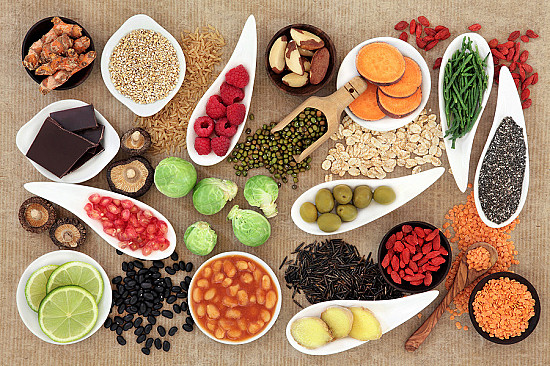Introduction
Fertility is a topic of great importance for many women who are planning to start a family. While there are various factors that can affect fertility, including genetics and medical conditions, one aspect that women have control over is their diet. A well-balanced and fertility-friendly diet can significantly improve the chances of conception. In this article, we will explore the key components of a fertility-friendly diet plan for women and how it can positively impact reproductive health.

Understanding the Link Between Diet and Fertility
Before delving into the specifics of a fertility-friendly diet, it’s essential to understand how diet can influence fertility. The foods we consume play a crucial role in regulating hormones, managing weight, and supporting overall health, all of which are essential for fertility.
- Hormone Regulation: Hormones like estrogen and progesterone have a direct impact on the menstrual cycle and ovulation. A balanced diet can help regulate hormone levels, ensuring that the reproductive system functions optimally.
- Weight Management: Maintaining a healthy body weight is essential for fertility. Both obesity and being underweight can negatively affect fertility by disrupting hormonal balance. A fertility-friendly diet can help you achieve and maintain a healthy weight.
- Nutrient Intake: Specific nutrients, such as folic acid, iron, and antioxidants, are vital for reproductive health. A well-planned diet ensures that you get an adequate supply of these nutrients.

Components of a Fertility-Friendly Diet
- Fruits and Vegetables: These should form the foundation of your fertility-friendly diet. They are rich in antioxidants, vitamins, and minerals that support overall health. Aim for a variety of colorful fruits and vegetables to ensure a wide range of nutrients.
- Whole Grains: Opt for whole grains like brown rice, quinoa, and whole wheat bread instead of refined grains. They provide complex carbohydrates and fiber, which help stabilize blood sugar levels and support hormonal balance.
- Lean Proteins: Include lean sources of protein like poultry, fish, tofu, and legumes in your diet. Protein is essential for egg production and overall reproductive health.
- Healthy Fats: Incorporate sources of healthy fats such as avocados, nuts, seeds, and olive oil. These fats are crucial for hormone production and absorption of fat-soluble vitamins.
- Dairy or Dairy Alternatives: Choose low-fat or non-fat dairy products if you consume dairy. If you are lactose intolerant or prefer plant-based options, opt for fortified almond milk, soy milk, or other dairy alternatives.
- Folic Acid: This B-vitamin is essential for fetal development and reducing the risk of neural tube defects. Foods rich in folic acid include leafy greens, beans, and fortified cereals.
- Iron: Iron is vital for maintaining healthy blood levels and supporting fertility. Sources of iron include lean meats, poultry, beans, and fortified cereals.
- Omega-3 Fatty Acids: Found in fatty fish like salmon, flaxseeds, and walnuts, omega-3 fatty acids can help reduce inflammation and support reproductive health.
- Limit Added Sugars: Excessive sugar consumption can lead to insulin resistance, which can disrupt ovulation. Avoid sugary drinks and limit sweets in your diet.
- Caffeine and Alcohol: While moderate caffeine intake is generally considered safe, excessive caffeine and alcohol consumption can negatively impact fertility. It’s advisable to limit or eliminate these substances when trying to conceive.
Sample Fertility-Friendly Meal Plan
To help you get started on your fertility-friendly diet journey, here’s a sample meal plan for a day:
Breakfast:
- Greek yogurt parfait with mixed berries and honey
- Whole grain toast with almond butter
- Green tea or herbal tea
Lunch:
- Grilled chicken breast with a side salad of leafy greens and vinaigrette dressing
- Quinoa or brown rice
- Steamed broccoli
Snack:
- A handful of almonds or walnuts
- Carrot sticks with hummus
Dinner:
- Baked salmon with lemon and herbs
- Roasted sweet potatoes
- Sautéed spinach with garlic
- Whole wheat dinner roll
Dessert:
- A small serving of dark chocolate (in moderation)
Incorporate plenty of water throughout the day to stay hydrated. Remember that portion control is essential, as overeating can lead to weight gain, which may negatively affect fertility.

Lifestyle Factors for Fertility
While diet plays a crucial role in fertility, it’s essential to consider other lifestyle factors as well:
- Regular Exercise: Incorporating regular physical activity into your routine helps maintain a healthy weight and promotes overall well-being.
- Stress Management: High levels of stress can disrupt the menstrual cycle. Practice stress-reduction techniques such as yoga, meditation, or deep breathing exercises.
- Adequate Sleep: Ensure you get enough quality sleep, as sleep deprivation can affect hormonal balance.
- Avoid Smoking and Excessive Alcohol: Smoking and excessive alcohol consumption can harm fertility. Quit smoking and limit alcohol intake if you’re trying to conceive.
- Regular Check-ups: Schedule regular check-ups with your healthcare provider to address any underlying health issues that may affect fertility.
it’s crucial to stay consistent and patient. Here are some additional tips and considerations:
Supplements: In addition to a well-balanced diet, your healthcare provider may recommend specific supplements to support fertility. These may include prenatal vitamins containing folic acid, iron, and other essential nutrients. Be sure to follow your healthcare provider’s guidance when it comes to supplementation.
Hydration: Proper hydration is essential for overall health and fertility. Drinking an adequate amount of water helps maintain cervical mucus quality, which can affect sperm motility and transport.
Food Preparation: How you prepare your food matters. Opt for cooking methods like grilling, steaming, or baking rather than frying, as they retain more nutrients. Limit the use of excessive cooking oils and opt for healthier alternatives like olive oil.
Moderation and Balance: While it’s essential to focus on fertility-friendly foods, remember that balance and moderation are key. Don’t deprive yourself of occasional treats or guilty pleasures, but enjoy them in moderation to maintain overall dietary balance.
Consultation with a Healthcare Provider: If you’ve been trying to conceive for an extended period without success, consider consulting a reproductive endocrinologist or fertility specialist. They can conduct fertility assessments and provide personalized guidance based on your specific situation.
Support and Resources: Joining a support group or seeking advice from others who have experienced fertility challenges can provide emotional support and valuable insights. There are numerous online and offline communities where individuals and couples share their experiences and strategies.
Tracking Your Menstrual Cycle: Understanding your menstrual cycle and ovulation patterns can help you time intercourse more effectively. There are various apps and tools available to help track your cycle and identify fertile days.
Couples’ Health: Remember that fertility is not solely a concern for women. It’s essential for both partners to maintain their overall health and well-being. Encourage open communication with your partner and involve them in your journey towards better fertility.
Conclusion
A fertility-friendly diet is not a guarantee of conception, but it can certainly improve your chances of achieving a healthy pregnancy. By prioritizing nutrient-rich foods, maintaining a healthy weight, and adopting a balanced lifestyle, you are taking proactive steps towards optimizing your reproductive health. Remember that individual needs may vary, so it’s advisable to consult with a healthcare provider or a registered dietitian to tailor your diet plan to your specific requirements. With the right approach, you can enhance your fertility and increase your chances of realizing your dream of starting a family.
